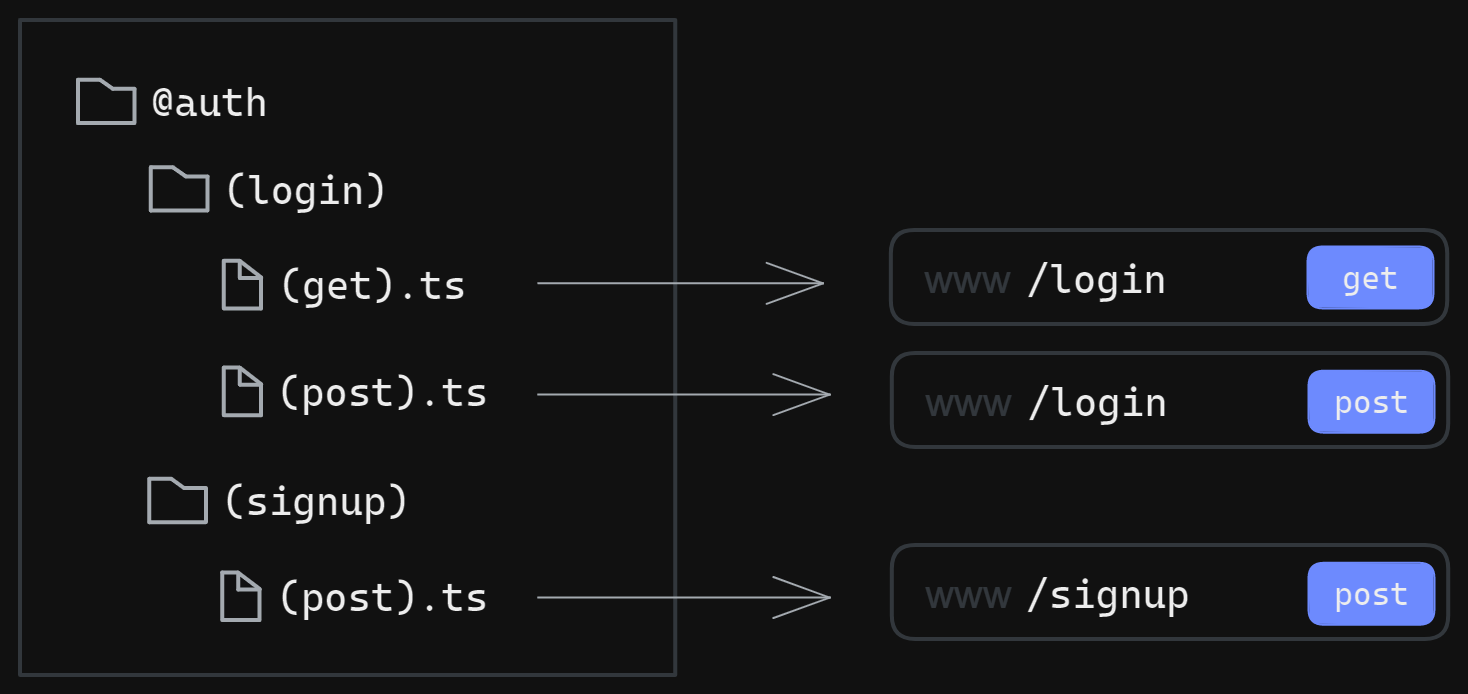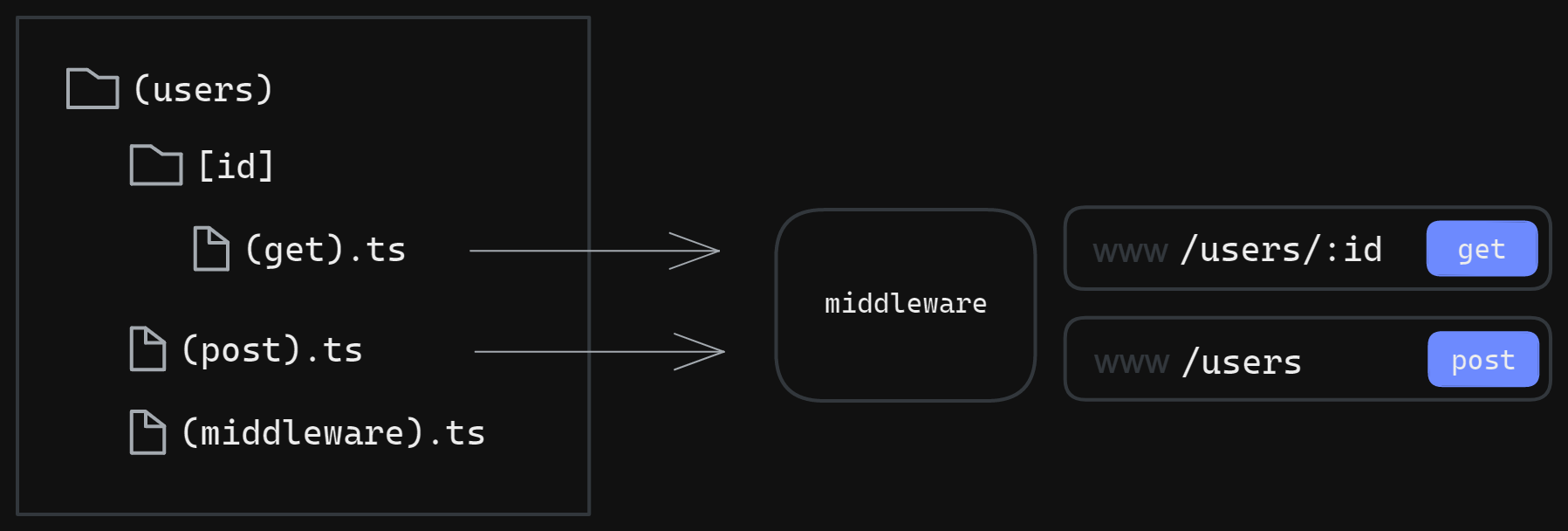This is very experimental DO NOT use it in production.
Atom is a simple robust web framework built with Deno. Many features are inspired by front-end frameworks like React and Next.js such as the file-based routing and hooks.
This is not a complete documentation because the framework is still in development. I will update this document as the framework evolves.
Routing is file-based meaning that each folder represents a route segment. Each folder should be wrapped within parentheses (). This is delibrate design choice so that you can colocate your own folders within your routes without any conflict.
The files within a route should be named after an HTTP verb such as get or post and should also be wrapped within parentheses ().
Look at the example below:
Each file should have one default export which is a function that takes the request as a parameter and returns a response. The parameter is an instance of Request and the return value should be an instance of Response
// -> /(get).ts
import { RequestHandler } from "atom";
const Home: RequestHandler = (request: Request) => {
return new Response(`Hello world, your url is ${request.url}`);
};
export default Home;The route handler is as simple as a function that takes a request and returns a response.
Note that the parameter type annotation is only written for explanation. It is not needed since we have already have a built in type for route handlers.
You can define dynamic parameters the same way you define routes but instead of wrapping the folder name with parentheses (), you have to wrap it within brackets []
You can access the parameters using a hooks called useParams. The difference between hooks and regular functions is that hooks usually have implicit access to the request object. That makes hooks very handy and powerful.
// -> /users/[id]/(get).ts
import { HttpStatus, useParams } from "atom";
export default function getUsers(): Response {
const params = useParams();
return new Response(`Getting user ${params.id}`, {
status: HttpStatus.OK,
});
}Not implemented yet
You can create a folder that starts with @ to group routes together without affecting the url
You can define a middleware by creating a file called (middleware).ts. Middlewares are nested meaning that if you define a middleware for /users it will also run when requesting /user/:id
To prevent a request from completing its destination just return a response. It is as simple as that.
// -> /routes/(middleware).ts
import { MiddlewareHandler } from "atom";
const homeMiddleware: MiddlewareHandler = (req) => {
const pathname = new URL(req.url).search;
const age = new URLSearchParams(pathname).get("age");
if (!age || +age < 18) {
return new Response("You are under 18");
}
};
export default homeMiddleware;You can also apply some middleware to a specific end-point by exporting an array of middlewares
// -> /routes/(get).ts
import { RequestHandler } from "atom";
const Home: RequestHandler = (req: Request) => {
return new Response(`Hello world, your url is ${req.url}`);
};
export const middlewares = [middleware1, middleware2]
export default Home;These middlewares will only apply to get requests at /



